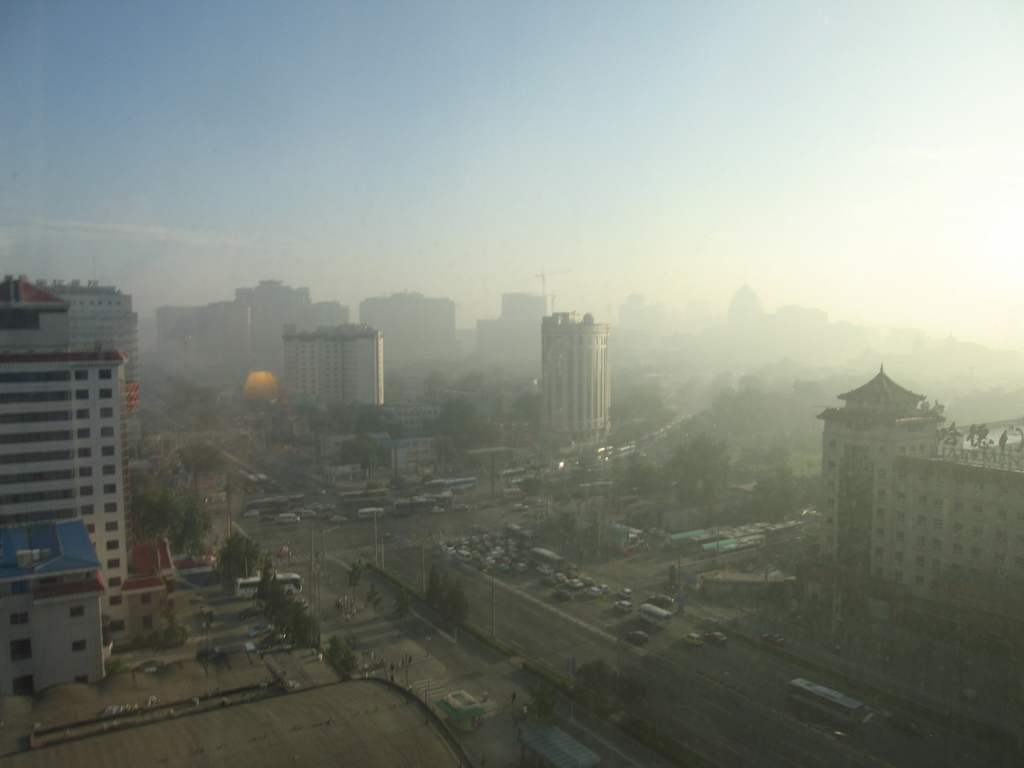ADB approves loan to help clean air in Bejing with among others geothermal heating

The Asian Development Bank (ADB) has approved a $499 million loan facility aimed at supporting efforts on improving air quality in the greater Beijing-Tianjin-Hebei area with among others geothermal-based district heating.
The Asian Development Bank’s (ADB) Board of Directors has approved a EUR428 million ($499 million) loan to set up a regional emission-reduction and pollution-control facility as part of a multiyear and multisector support program to improve air quality in the greater Beijing-Tianjin-Hebei (BTH) region, which suffers from heavy air pollution in the People’s Republic of China (PRC).
“We remain committed to helping the PRC government improve air quality and reduce pollution in the greater BTH region, where a third of the country’s economic growth comes from,” said Lin Lu, Senior Energy Specialist at ADB’s East Asia Department. “Air pollution poses an enormous health risk to people living in the region and hurts economic development. The proposed facility will help the region adopt sophisticated green technologies to improve air quality.”
Cities in the greater BTH region have consistently been reported to have the highest concentration of particulate matter and other air pollutants, following decades of emissions from pollution-intensive industries in the area, as well as the region’s heavy reliance on coal for energy generation.
While the PRC government has been actively addressing this challenge since the launch of the Comprehensive Action Plan for Air Pollution in 2013, which introduced the PRC’s most stringent measures to reduce air pollution, more than 95% of the cities in the BTH region still suffer from air pollution above the World Health Organization and national ambient air quality standards.
The third ADB loan will build on previous efforts to improve air quality in the region. ADB’s first policy-based loan worth $300 million, approved in 2015, focused on strengthening policy reforms and regulatory capacity in Hebei province. The second ADB loan worth EUR458 million ($499.6 million), approved in 2016, aimed at improving small and medium-sized enterprises’ access to finance and helped them scale up investments in pollution-reduction projects in the region.
The Regional Emission-Reduction and Pollution-Control Facility will showcase how advanced technologies, including hydrogen-based low-emission transport, geothermal-based district heating, biogas and organic fertiliser production facilities, and smart micro-grids, can be adopted on a large scale by major emitting industries and enterprises. The facility will draw on three types of complementary investment funds: a regional fund, provincial or municipal funds, and technology- or industry-specific funds targeting high-polluting sources. This structure will help attract large co-financing from domestic institutional investors and commercial banks, local government investors, and technology providers.
The facility will be managed and administered by the China Energy Conservation and Environmental Protection Group, the PRC’s largest state-owned enterprise focused on energy conservation and environmental protection. The company will identify subprojects, match them with appropriate business models for deploying advanced technologies at scale, and provide financing, including debt and equity investments, to eligible subprojects. The facility will also set up an industry-specific fund to support energy-saving and emission-reduction subprojects in the iron and steel industry.
ADB’s assistance is expected to attract nearly EUR1.3 billion ($1.53 billion)—almost three times the original loan amount—in co-financing from public and private sectors. By 2023, the project will train at least 200 people in the use of advanced technologies, the selection of business models appropriate for the sub-projects, and the investment decision-making in selected industries.
Source: ADB